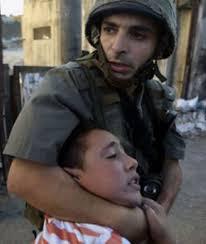
The Special Rapporteur on extrajudicial, summary or arbitrary executions explains that the term “extra-judicial executions is used to refer to executions other than those carried out by the State in conformity with the law” (Alston, 2009). The execution of juvenile offenders by the State, which is prohibited by both the Convention on the Rights of the Child (Article 37) and the International Covenant on Civil and Political Rights (Article 6), has also previously fallen under the Special Rapporteur’s mandate.
Extra-judicial executions of children are reported in a number of States. For example, the UN Study on Violence Against Children reports that, in Honduras, a total of 59 children and young people under the age of 23 died in detention centres between May 2002 and March 2004. Local NGOs said that 41 of these victims were extra-judicially executed by agents of the State. Following her visit to Brazil in 2004, Asma Jahangir, at the time UN Special Rapporteur on extrajudicial,summary or arbitrary executions, reported that victims of police violence and summary executions tended to be young Afro-Brazilian males between the ages of 15–19 years, who were often involved in criminal gangs.
The Committee on the Rights of the Child has cited reports of extra-judicialkilling in Nigeria, Honduras, Brazil, the Philippines, Cameroon, Israel, Colombia, and Venezuela. Children working and/or living on the street may be particularly at risk, partly because their murder or disappearance is less likely to be reported – although children from excluded or marginalised groups in general, such as poor children, are also more likely to be victims.
The persecution and killing of children accused of practising so-called “witchcraft” is also relevant and a is “significant phenomenon in many parts of the world”. Unfortunately, however, the issue has not been significantly addressed by human rights mechanisms. CRIN has distributed information about crimes against ‘child witches’ in Nigeria.
What can be done?
Impunity feeds abuse, and it is important that cases of extra-judicial executionsare thoroughly investigated. The appropriate training of State agents is also of paramount importance. Following a visit to Ecuador in 2010, among the recommendations made by UN Special Rapporteur Philip Alston were the adoption of a national strategy to combat hired killings, the establishment of an independent police oversight entity, and the expansion of the witness protection programme to address the high level of impunity for killings.
Human rights tribunals may also provide the opportunity to hold States to account. In an important case – the first of its kind - the Inter-American Court of Human Rights ruled against Honduras in the case of four minors executed by State agents in 1995.
With respect to accusations of witchcraft, the Committee on the Rights of the Child has called for effective measures to prevent children from being accused of the practice, including through continuing and strengthening public awareness-raising activities, particularly directed at parents and religious leaders and by addressing root causes such as poverty. It has also recommended legislative and other measures to criminalise accusing children of witchcraft, furthering efforts to prosecute those responsible for violence and ill-treatment against alleged child witches, and programmes to promote the recovery and reintegration of child victims.
Source: CRIN
 FR
FR EN
EN AR
AR








